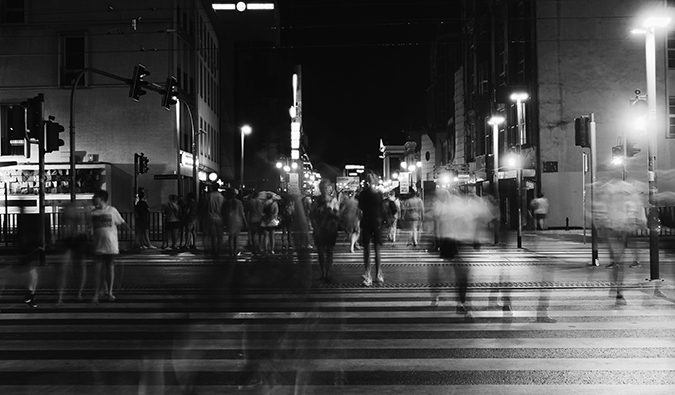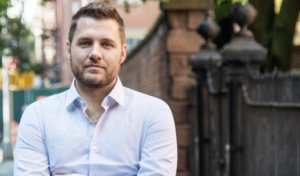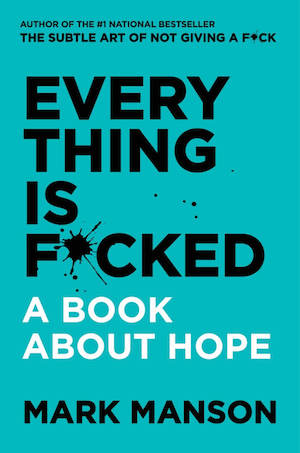
Posted: 7/29/2019 | July 29th, 2019
I was recently gifted the sci-fi thriller Dark Matter. Without giving too much away, the book revolves around the idea of a multiverse, where every possible outcome of a decision plays out — and each decision thereafter creates another split and so forth and so forth. It’s an infinite multiverse of all the possible outcomes of every decision you could ever make.
But, to me, it’s really a book about regret.
It’s about wondering what would have happened if you had followed the road not taken.
Where would you be if you had stayed with that girl, taken that job, or moved to that new city? Would you be happier as a result?
We map out how we hope our life will unfold.
First this, then that, then this, then that.
But life never unfolds the way we imagine it will. Life isn’t like writing a novel where you can plot out how things will end and ensure the characters behave as you want. Every decision you — and those around — make throughout the day shifts the direction of your life.
Life is what happens when you are busy making plans.
One day, we wake up and find we’re far off from the path we had hoped to traverse. We took a different job; broke up with that girl; suffered a health issue, family death, or financial disaster; moved somewhere new; decided to go back to school; or met someone who inspired us to travel the world.
A million and one things can pull us off the path we envisioned.
When you look back on the whole of your life, it’s easy to see where you deviated from the path you laid out for yourself. You can see the pivotal choices and moments that changed your life for good or ill.
What would have happened if my friend Scott had never convinced me to go to Thailand all those years ago?
Or if I had missed that bus in Chiang Mai where I met those backpackers who ended up inspiring my trip around the world?
What if I had never started this blog?
What would have happened if I had stayed in Taiwan with my girlfriend all those years ago?
Humans are really good at wondering about what might have been. We tend to look at our life in retrospect and judge our past actions by where we are now.
But when we’re in our life, you don’t see the grand vision. We’re just trying to get through the day as best we can. We’re thinking about the tasks at hand — the meeting in an hour, the laundry that needs to be picked up later, what we’re going to make for dinner — not the big picture.
Our brains aren’t hardwired for that kind of thinking.
For all our big talk about how humanity is different because we can think about the future, we’re often just like other animals: only seeing the moment right in front of us.
When I moved to Paris, I had big goals. I was going to meet people, attend influencer and tourism events, sightsee every day, and live that #bestlife.
Yet through long lunches and bottles of wine with friends and long days writing my new book, and by catching up on sleep and hosting a lot of friends, I strayed far from those original plans. Looking back, I did little of what I originally planned to do.
In a sense, I failed.
And I could easily look back with regret and wonder what would have happened if I had done what I had planned to do. What would I have learned about the city? Who would I have met?
But then I think back to Dark Matters and the question that sets the whole book in motion:
“Are you happy with your life?”
It’s such a simple but powerful question.
Beyond all the daily complaints and frustrations and minor annoyances, how often do we really ask such a deep and fundamental question?
“Are you happy with your life?”
Day to day, it’s easy to lose sight of the big picture. To never see the forest through the trees. To look back and think of the goals we made that we never reached.
But what we do every day is a reflection of our values and our goals.
If you’ve lived your values every day, haven’t you really reached those goals?
When you zoom out and ask yourself if you’re happy with your life, what do you say?
We get twenty-four hours to make the right choice.
And if we fail, we get to wake up and try again.
I wouldn’t trade those long meals and writing sessions or those quiet nights in for anything. They helped create a sense of balance in my life the first time in a long time.
When I look back at the what-ifs and see the choices I made, I can’t really regret them — because they brought me to where I am today.
And, when you’re happy with your life, how can you really regret the path that brought you there – even if it’s not the exact one you planned?
P.S. – I just released a new book! It’s called “Ten Years a Nomad” and it’s about my ten years backpacking the world and the lessons I learned from it. It features tons of stories I’ve never told on this blog and is a book that delves into the why of travel! Click here to learn more, grab your copy today, and meet me on my book tour!
Book Your Trip: Logistical Tips and Tricks
Book Your Flight
Find a cheap flight by using Skyscanner or Momondo. They are my two favorite search engines because they search websites and airlines around the globe so you always know no stone is left unturned.
Book Your Accommodation
You can book your hostel with Hostelworld. If you want to stay somewhere other than a hostel, use Booking.com as they consistently return the cheapest rates for guesthouses and cheap hotels. I use them all the time.
Don’t Forget Travel Insurance
Travel insurance will protect you against illness, injury, theft, and cancellations. It’s comprehensive protection in case anything goes wrong. I never go on a trip without it as I’ve had to use it many times in the past. I’ve been using World Nomads for ten years. My favorite companies that offer the best service and value are:
- World Nomads (for everyone below 70)
- Insure My Trip (for those over 70)
Looking for the best companies to save money with?
Check out my resource page for the best companies to use when you travel! I list all the ones I use to save money when I travel – and I think will help you too!
The post Are You Happy With Your Life? appeared first on Nomadic Matt's Travel Site.

